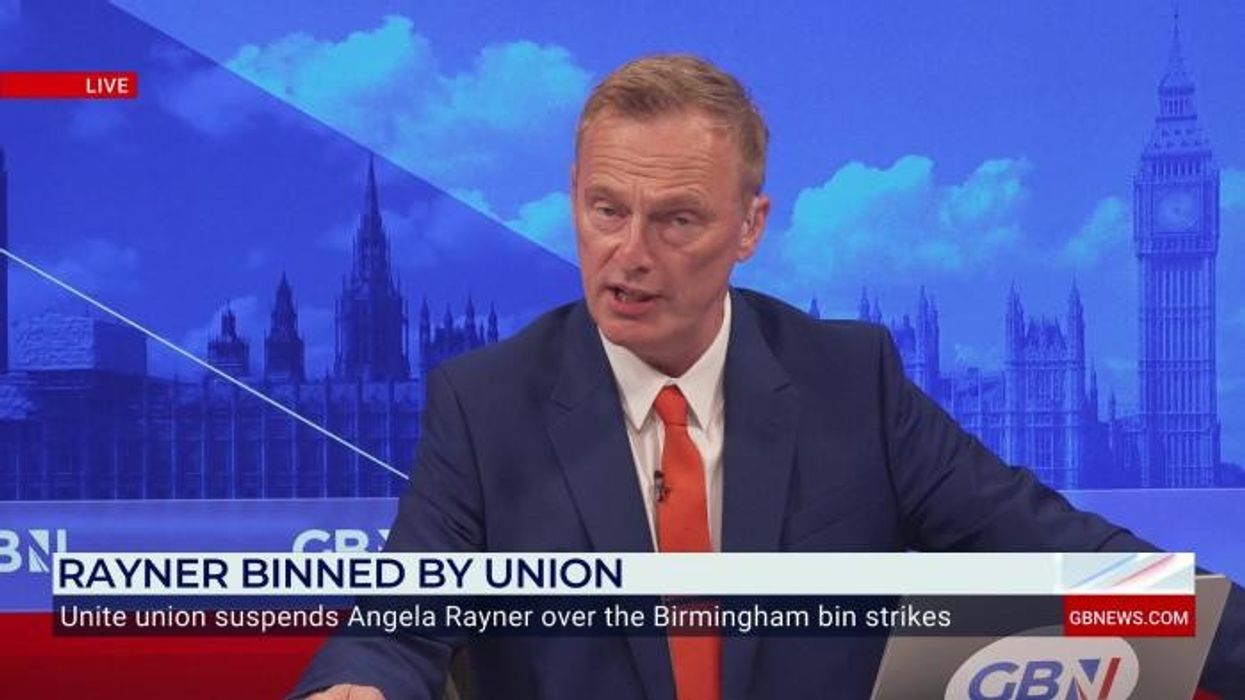Marking Pakistani independence while taking down Union Jack flags is dangerous tribalism - Rakib Ehsan

GB
Our public authorities must be alert to feelings of cultural anxiety among disaffected elements of traditional English working-class communities
Don't Miss
Most Read
Trending on GB News
A public institution which is no stranger to controversy, Labour-run Birmingham City Council has once again landed itself in hot water by lighting the Library of Birmingham green and white to mark the eve of 77th anniversary of Pakistan Independence Day - while its workers have been taking down scores of St George's Cross and Union Jack flags attached to lampposts by residents.
This outpouring of British patriotism and English pride in Northfield – a residential area in the outer southern part of the city of Birmingham – appears to have been suppressed on health and safety grounds.
Birmingham City Council has enforced the removal of the flags, describing them as dangerous unauthorised items which are risking the lives of both motorists and pedestrians.
**ARE YOU READING THIS ON OUR APP? DOWNLOAD NOW FOR THE BEST GB NEWS EXPERIENCE**
There is the possibility that the mass removal of the St George’s Cross and Union Jack flags – by a city council which has decided to light up a major public library green and white in commemoration of the Independence Day of Pakistan – could trigger protests in Birmingham, a city which has undergone significant demographic and cultural change.
According to the 2021 Census, well under half of Birmingham’s residents belong to the white-British ethnic category (43 per cent), with only one in ten people in England’s second-largest city expressing an ‘English-only identity’.
This entire debacle will only reinforce the view that many of our public institutions are more than happy to celebrate the national history, heritage, and culture of other countries – especially those where our sizeable ethnic minorities originate from – but are uneasy and squeamish over expressions of British pride and English identity.
For all this to be happening at a time when the white-British proportion of England’s population is on a consistently downward trajectory – to the point that we have nonwhite-majority cities such as Birmingham and Leicester and towns like Slough and Luton – brings significant social risks. Marking Pakistani independence while taking down Union Jack flags is dangerous tribalism - Rakib Ehsan |
Marking Pakistani independence while taking down Union Jack flags is dangerous tribalism - Rakib Ehsan | X
Indeed, it will serve to exacerbate existing feelings of cultural marginalisation among the traditional English working classes, who have already become a minority group in various parts of the country.
The green-and-white lighting up of the Library of Birmingham for Pakistan Independence Day is controversial for other reasons.
The creation of modern-day Pakistan took place after the division of British India into two independent dominion states, the Union of India and Dominion of Pakistan – otherwise known as the 1947 Partition, which was a bloody and gruesome process where industrial-scale violence along religious lines took place.
Is it appropriate to light up a major public library in Birmingham in the colours of green and white to celebrate Pakistan Independence Day – a city which has a notable Indian-Hindu heritage population, especially in parts of Harborne and Edgbaston?
In England, no foreign or ideological activist flag should be flown on state buildings, and neither should they be plastered in the national colours of a non-UK country – and this includes public libraries such as the Library of Birmingham.
There should be a reassertion of national and local pride by our public institutions in England, rooted in the traditions and heritage of this nation and its cities, towns, and villages.
This strict policy – which admittedly sounds uncompromising - would also help to reduce the risk of quarrelling between different ethnic minorities, especially those based on imported geopolitical tensions and territorial grievances.
Our public authorities must be alert to feelings of cultural anxiety among disaffected elements of traditional English working-class communities – especially in parts of England where the pace of social change has been considerable. These institutions must not indulge in irresponsible forms of tribalism inspired by foreign identities and loyalties to lands afar.










